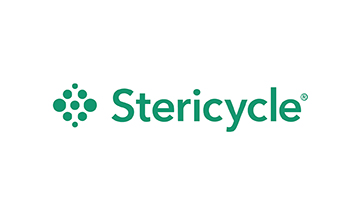Climate change is high on the agenda and it is vital that the health sector plays its part in working in a more sustainable way. The NHS has already publicly pledged to lower its carbon footprint and reduce the environmental damage caused by plastic waste.
This month, according to the Health Service Journal, Greater Manchester Health and Social Care Partnership has become the first Integrated Health System in the country to draw up a sustainable development management programme – a requirement for all providers.
As well as swapping millions of pieces of plastic cutlery, straws and stirrers for more sustainable alternatives, the partnership has a number of initiatives underway, including reducing its carbon footprint by consolidating deliveries through a central logistics hub, potentially reducing carbon dioxide emissions by 1,750 tonnes over 10 years.
However, despite a 19 per cent reduction in the carbon footprint of health and social care across the UK since 2007, there is still a significant challenge ahead to meet the Climate Change Act target of 34 per cent by 2020 and 51 per cent by 2025.
Examples of Plastic Waste in Healthcare Settings
Plastic waste in healthcare settings encompasses a wide range of items, including single-use syringes, IV tubing, and packaging materials for medications.
Additionally, disposable gloves, masks, and protective gear contribute significantly to plastic waste. Addressing these sources of plastic waste is crucial for promoting environmental sustainability and reducing the healthcare sector's ecological footprint.
Leveraging Technology to Prioritise Recycling Over Incineration
In this month’s Materials Recycling World, David Williams (Senior Manager, Operational Environment, Health & Safety) highlights how, in order to make a sustained impact, the NHS must look beyond the canteen and into its wards and theatres.
While maintaining a zero-carbon status is difficult for the health economy, (single-use plastic is essential in some healthcare appliances to prevent contamination and the spread of infection), it is possible to decrease its use in other areas.
Stericycle is committed to the challenge of sustainably managing healthcare waste and through our partnership with the NHS, we now provide re-usable sharps containers that go through a three-stage disinfection process using state of the art technology, to avoid incinerating single use plastic sharps containers.
In many areas of hospital waste, incineration is unavoidable, but recycling sharps containers is safe, effective and sustainable as well as providing financial benefits.
The Environmental Benefits of Reusable Sharps Containers
Using Stericycle’s Bio Systems Sharps Management Solution, each container can be re-used up to 600 times, preventing the need for incineration. Incinerating 600 single-use containers would be the equivalent of running two small cars for a year. The bulky packaging from each of the single-use containers is also eliminated. As well as being better for the environment, the NHS is no longer buying new containers and paying the associated incineration costs.
So far, 25 NHS Trusts, 300 NHS pharmacies and 30 NHS Renal Clinics across England have made the switch to reusable sharps containers, resulting in 647 tonnes of single-use plastics being removed from incineration in 2018.
Time is ticking, but small changes such as this made in a big organisation like the NHS can have a significant impact on the fight to reverse the changes that are affecting our world.



